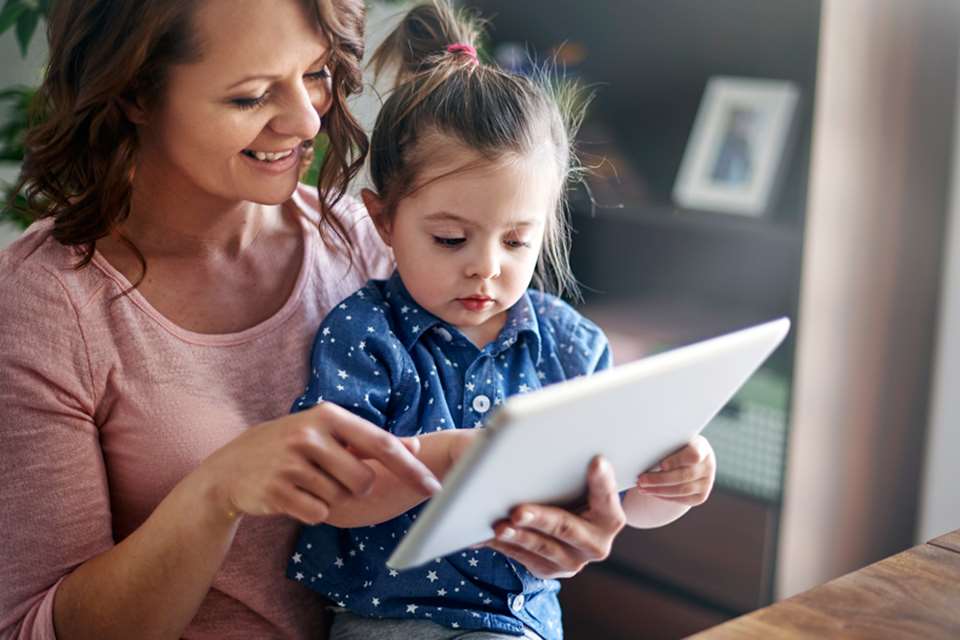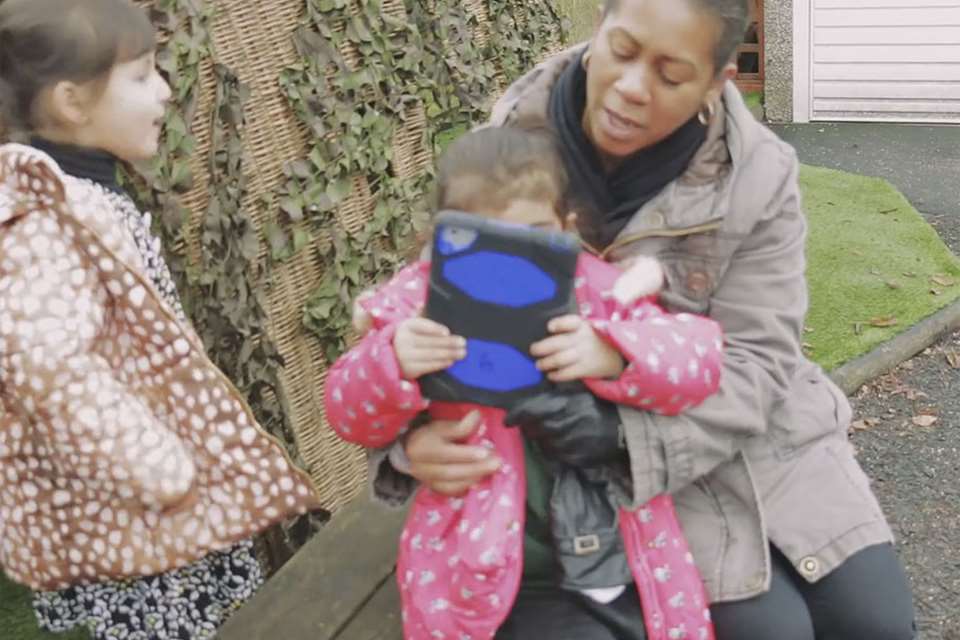New screen time guidelines for early years children
Kathryn Ingham
Friday, October 28, 2016
A policy statement released by the American Academy of Paediatrics (AAP) recommends further reductions in the amount of time infants, toddlers and pre-school age children spend in front of a screen.

In response to the increasing adoption of modern household technologies, The Council on Communications and Media at the AAP has released fresh guidelines for children from birth to five, designed to limit the adverse effects of excess exposure to digital media.
The research reviews existing literature on a variety of digital media, including television and mobile/interactive technologies, along with relevant health concerns and the possibility of educational benefit.
The final statement concludes that there are multiple developmental and health concerns relating to excess use of digital media including obesity and sleep disruption, with sufficient evidence to recommend a time limitation of one-hour screen time for children from two to five, and zero hours for infants under 18 months.
The new recommendation is half of the AAP’s previous suggestion that children over two years of age should not watch more than two hours of screen time daily.
The limitation is designed to allow time for children to engage in other activities important for health and normal development.
The statement makes reference to the importance of not displacing sleep, exercise, play, reading aloud, and social interactions.
It also highlights specific recommendations for areas in which paediatric providers can guide families regarding the use of digital media.
It suggests that parent-child shared media use should be encouraged but not during meal times and limited to high quality programming. ‘Encouraging parents to change to educational and prosocial content and engage with their children around technology will allow children to reap the most benefit from what they view,’ it says.
The AAP advise that professional providers should be informed on how to help parents find appropriate content, tools for monitoring or limiting child use, and also how to come up with ideas for play or activities which don’t rely on digital content
Clinical psychologist Dr Virginia Lumsden commented on the recommendations. ‘New guidelines that reflect our current media environment are welcome. However, it is important to recognise that we do not yet have the evidence to demonstrate the long-term impact of screens on infants and young children.
‘That said, the new guidelines will be useful for parents and those working with children. I hope that their publication will also ensure that children's screen use remains a topic at the forefront of the minds of parents and professionals.’
Recommendations for providers from the AAP
- Start the conversation early. Ask parents of infants and young children about family media use, their children’s use habits, and media use locations.
- Help families develop a Family Media Use Plan (www.healthychildren.org/MediaUsePlan) with specific guidelines for each child and parent.
- Educate parents about brain development in the early years and the importance of hands-on, unstructured, and social play to build language, cognitive, and social-emotional skills.
- For children younger than 18 months, discourage use of screen media other than video-chatting.
- For parents of children 18 to 24 months of age who want to introduce digital media, advise that they choose high-quality programming/apps and use them together with children, because this is how toddlers learn best. Letting children use media by themselves should be avoided.
- Guide parents to resources for finding quality products
- In children older than two years, limit media to one hour or less per day of high-quality programming. Recommend shared use between parent and child to promote enhanced learning, greater interaction, and limit setting.
- Recommend no screens during meals and for one hour before bedtime.
- Problem-solve with parents facing challenges, such as setting limits, finding alternate activities, and calming children.
Download the policy statement here









